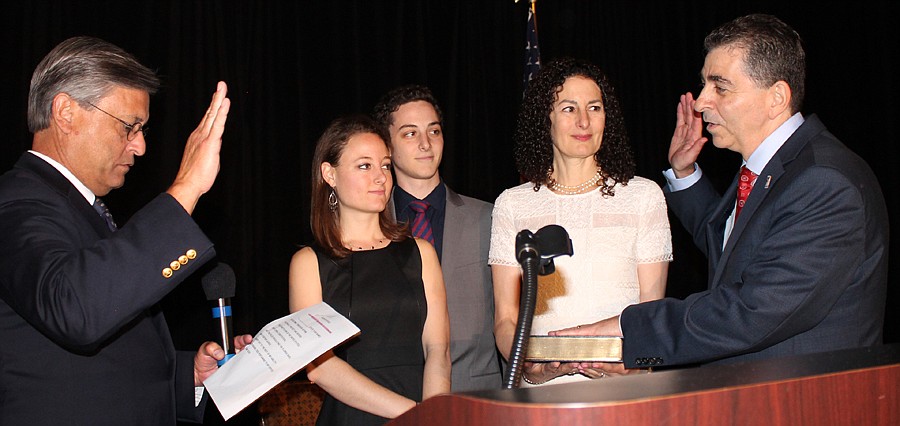
Michael Higer, partner of the Dispute Resolution Team at the Berger Singerman law firm in Miami, was sworn in June 23 as the 69th president of The Florida Bar.
Higer, 56, received his undergraduate degree from the University of Florida and his juris doctorate with honors in 1985 from the University of Miami School of Law, where he was executive editor of the Law Review.
After he was admitted to the Bar, he joined Fine Jacobson Schwartz Nash Block & England as a commercial litigator and then joined Coll Davidson Carter Smith Salter & Barkett before forming Higer Lichter & Givner in 2006. He joined Berger Singerman in 2015.
A few days after he took over the Bar’s highest elected post, Higer talked to the Daily Record about his plans for his year in office.
“There are a million things that any Bar president can focus on and a million different directions, so we establish priorities,” Higer said.
The 2017-18 Bar year will be based on what Higer called “pillars.”
∙ The Constitution Revision Commission is an opportunity once every 20 years for residents and The Florida Bar to help shape Florida’s future.
After convening in several locations across the state, the group will submit proposed amendments to the state constitution in May that will be on the ballot in the November 2018 general election.
Higer said the Bar is working with the commission to educate its members and communities and to encourage the public’s involvement with the process, as well as offering the services of its members as subject matter experts.
“You’ve got 37 commissioners who come from diverse backgrounds. None of them are professionals in terms of amending the constitution — there’s no such thing — so we will be there to provide subject matter expertise,” Higer said.
He said he attended one of the commission meetings at Florida International University in South Florida and was impressed by the public participation.
“The process and the level of discussion was really good,” said Higer.
∙ The Bar will work to develop diverse leaders within its own ranks and on each of the Judicial Nominating Commissions to ensure a justice system that is reflective of and responsive to the people it is designed to serve.
“Regardless of race, creed, color, sexual orientation and so on, we want to make sure the playing field is level for everyone who is involved in our Bar. Not just lawyers, but the court system as well,” Higer said.
∙ The Florida Bar will explore ways to continue to harness the power of technology to better connect to its 104,000 members, with their clients and with the public.
Higer said the reality is most of Florida isn’t urban, it’s rural, and that makes using technology critical when it comes to staying connected.
∙ Technology will aid The Florida Bar in providing a range of benefits to its members. Higer said that 75 percent of attorneys in the state are sole practitioners or they work in a firm with 10 or fewer lawyers.
“We have a number of initiatives available to our lawyers to provide them the benefits they need to practice and compete,” he said, such as the Practice Resource Institute website.
“A lawyer can go online 24/7 and get all the practice management resources, tools, software, continuing education, videos and so on that will help them practice and compete in this market.”
The Bar will place renewed emphasis on the need to help its members achieve better work-life balance and help them develop healthy lifestyles that will help them cope with the conflict and stress often faced by lawyers.
Higer said one of the main purposes of the organization is “to make our members strong” and able to serve the public and to serve the interest of justice.
“It’s not an easy profession,” he said.